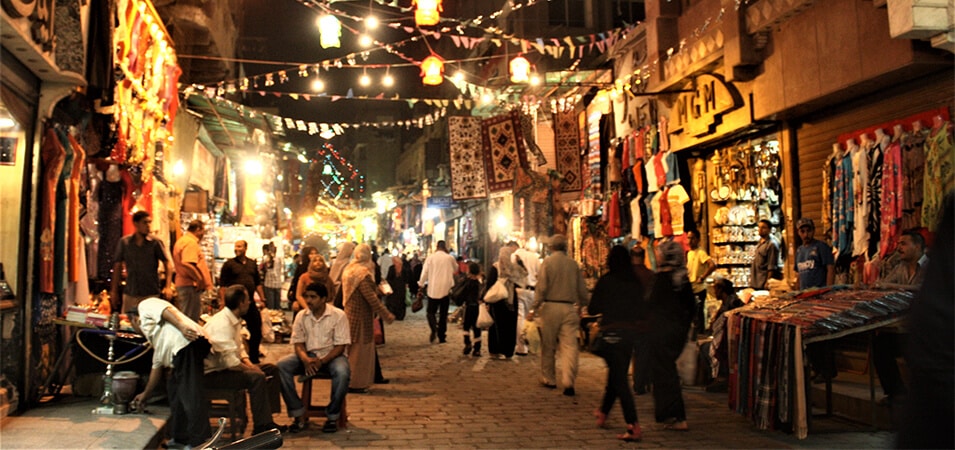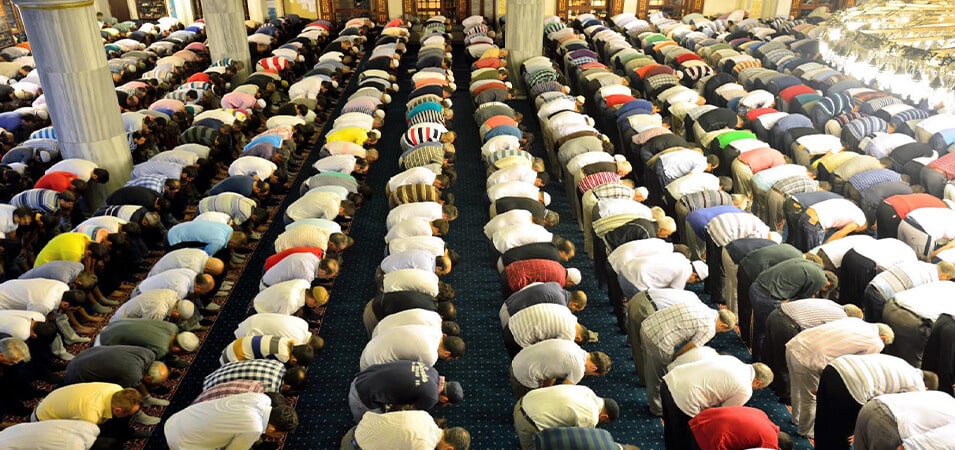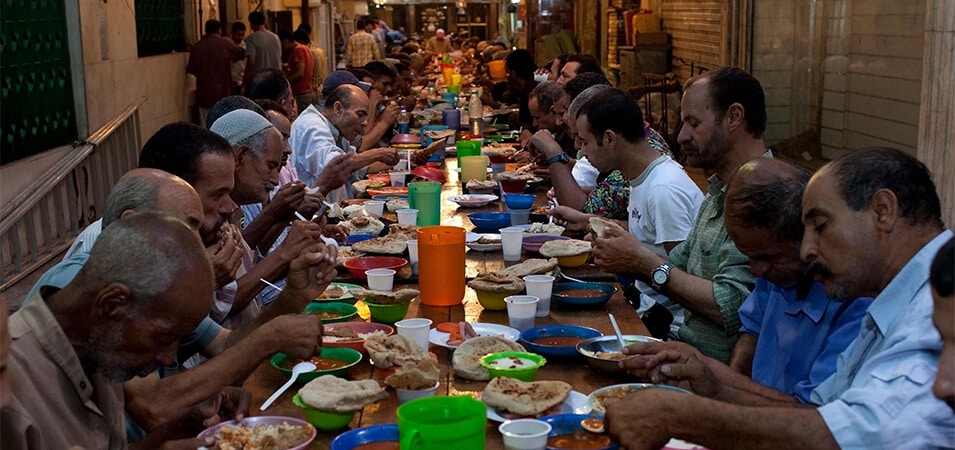Ramadan is necessary for Muslims worldwide, and Egypt is no different. This piece looks at the many cultural practices that Egypt has for Ramadan. From the early morning meal to the parties, Egypt’s Ramadan customs show how deeply rooted the country’s religious and cultural traditions are.
Don’t Miss checking out our Egypt Tour Packages.
Why Is Ramadan Important?

Ramadan is the ninth month of the Islamic lunar calendar. For Muslims worldwide, it is a significant holy time. It is a time to fast, pray, think, and be more self-disciplined. Muslims celebrate Ramadan to remember when the Quran was given to the Prophet Muhammad (peace be upon him) and to try to get closer to Allah and grow spiritually.
Preparing for Ramadan
Egypt starts getting ready for Ramadan weeks ahead of time. Families clean their homes well and do good things for others to prepare their souls for the holy month. People are getting new clothes, dates, and fixings for traditional Ramadan foods at the markets.
Suhoor is an early morning meal.
Egyptians get up before dawn to eat Suhoor, which means “breakfast.” This meal is important because it gives you food and energy for the long fasting day ahead. Families get together to eat, often eating falafel, bad medames (an Egyptian food made with fava beans), and freshly baked bread.
Fasting During the Day
As an act of worship and self-discipline, Muslims in Egypt don’t eat, drink, or care for other essential daily needs. People think of the fast as a time for spiritual thought, patience, and caring about those who have less.
Iftar means to break the fast.
As the sun goes down, Egyptians eagerly meet for Iftar, which means “breaking the fast.” The adhan, the call to prayer, sounds from the churches now. Families and groups get together to eat traditional meals like koshary, a famous Egyptian street food, stuffed grape leaves, and konafa, a sweet dessert.
The Prayers of Taraweeh

Many Egyptian Muslims go to the churches after Iftar for the Taraweeh prayers. During Ramadan, these special prayers are said by reading long sections of the Quran. The churches are decorated beautifully, and the air is full of prayer and peace.
The Giving Spirit
During Ramadan in Egypt, giving to others is very important. Muslims are told to help those who don’t have as much as they do by being kind and generous. Many people help those in need by giving them money, food, and clothes. Mosques and charitable groups put together programs to help the poor get food and other necessities.
Family and neighborhood get-togethers
During Ramadan, family ties get more robust, and group energy grows. Egyptians often get together with family and friends to share a meal and give each other gifts. These
Community members are more likely to love and get along with each other when they get together.
Traditional Foods for Ramadan
During Ramadan, Egyptian food includes a wide range of tasty meals. Traditional sweets like baklava and basbousa and spicy treats like kibbeh and samosas show how diverse Egyptian food is. Dates are a big part of Ramadan. They are eaten to break the fast and give you energy.
Decorations and Lanterns
During Ramadan, Egypt’s streets are filled with bright lights called “fans.” These lights are essential to the culture and make towns and neighborhoods more joyful. Families often put up lights and colorful decorations in their homes to enjoy the holy month.
Doing Good Things
During Ramadan, there are also large-scale projects in Egypt and small-scale projects. People and organizations set up iftar huts where anyone in need can get a free meal. During the month of Ramadan, these plans are meant to make sure that no one goes hungry.
Getting ready for Eid al-Fitr
At the end of Ramadan, people celebrate Eid al-Fitr, a happy holiday that marks the end of the month-long fast. Egyptians greet each other, give gifts, wear their best clothes, and eat big meals. Families visit each other, and children receive “Eidiya,” which is money given as a sign of blessings and good wishes.
Gatherings and events that are religious
During Ramadan, different religious events and gatherings occur in Egypt’s churches. Scholars talk about the principles of Islam, read from the Quran, and give spiritual advice. Because of these events, the Muslim community becomes a place of study, dedication, and unity.
Ramadan in Modern Egypt
- In modern Egypt, Ramadan customs are still a big part of everyday life. During Ramadan, special shows and plays are shown on TV, which brings in many people. At night, the streets come to life with busy markets and food stands, making it a fun place for families and friends to hang out.
- In Egypt, Ramadan is a time of deep piety, family time, and many cultural events. From the meal before dawn to the big Eid al-Fitr parties, Egyptians celebrate the holy month with a lot of dedication and excitement. Egypt has a strong faith history, and its Ramadan practices and habits show that the country values kindness, community, and humanity.

FAQs on Ramadan in Egypt
Does everyone Muslim who lives in Egypt have to fast during Ramadan?
Adult Muslims must fast during Ramadan unless they have a good reason, like being sick or traveling.
How long does Egypt’s Ramadan last?
Depending on when the new moon is seen, Ramadan can last either 29 or 30 days.
During Ramadan, what are some classic Egyptian sweets that people eat?
Traditional Egyptian sweets like kunafa, basbousa, and qatayef are often eaten during Ramadan.
Are there any artistic events or gatherings in Egypt during Ramadan?
Yes, during Ramadan, there are many cultural events and holidays, such as singing acts, art shows, and religious talks.
How do people who aren’t Muslims in Egypt take part in Ramadan or show respect?
During Ramadan, non-Muslims in Egypt often eat Iftar meals with their Muslim friends and neighbors and do nice things for them.
Don’t Miss checking out our Related Article :
Discover Egypt’s Holy Family Trail: Unveiling Sacred Destinations
Ultimate Guide: Planning a Trip to Egypt – Top Tips & Attractions
